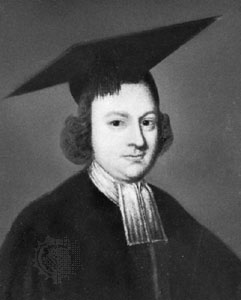Related Research Articles
This article contains information about the literary events and publications of 1817.
This article contains information about the literary events and publications of 1801.
This article contains information about the literary events and publications of 1775.
This article contains information about the literary events and publications of 1723.
This article contains information about the literary events and publications of 1726.
This article contains information about the literary events and publications of 1732.
This article contains information about the literary events and publications of 1743.
This article contains information about the literary events and publications of 1752.
This article contains information about the literary events and publications of 1756.
This article contains information about the literary events and publications of 1757.
This article contains information about the literary events and publications of 1758.
This article contains information about the literary events and publications of 1652.

Christopher Smart was an English poet. He was a major contributor to two popular magazines, The Midwife and The Student, and a friend to influential cultural icons like Samuel Johnson and Henry Fielding. Smart, a high church Anglican, was widely known throughout London.
Nationality words link to articles with information on the nation's poetry or literature.
Nationality words link to articles with information on the nation's poetry or literature.
Nationality words link to articles with information on the nation's poetry or literature.
Nationality words link to articles with information on the nation's poetry or literature.

In 1752, Henry Fielding started a "paper war", a long-term dispute with constant publication of pamphlets attacking other writers, between the various authors on London's Grub Street. Although it began as a dispute between Fielding and John Hill, other authors, such as Christopher Smart, Bonnell Thornton, William Kenrick, Arthur Murphy and Tobias Smollett, were soon dedicating their works to aid various sides of the conflict.

The Hilliad was Christopher Smart's mock epic poem written as a literary attack upon John Hill on 1 February 1753. The title is a play on Alexander Pope's The Dunciad with a substitution of Hill's name, which represents Smart's debt to Pope for the form and style of The Hilliad as well as a punning reference to the Iliad. In "Book the First" of The Hilliad, Hillario is seduced by a Sibyl to give up his career as an apothecary and instead becomes a writer. However, his fortune quickly descends with Hillario ultimately turning into the "arch-dunce".

Philadelphia Austen Hancock was an English socialite and the aunt of Jane Austen. Throughout her life, rumours circulated in India and England that she was the mistress of Warren Hastings, who was the godfather and suspected father of her daughter, Eliza de Feuillide.
References
- ↑ Oak Island Theories: Reverend Seccombe
- ↑ Lance Bertelsen, "'Neutral Nonsense, neither False nor True': Christopher Smart and the Paper War(s) of 1752–53". In Christopher Smart and the Enlightenment, edited by Clement Hawes, p. 144. New York, NY: St. Martin's, 1999. ISBN 9780312213695.
- ↑ Paul Poplawski (1998). A Jane Austen Encyclopedia. Greenwood Publishing Group. pp. 3–. ISBN 978-0-313-30017-2.
- ↑ Poetical Works p. 443.
- ↑ Wakil Ahmed (2012). "Heyat Mamud". In Sirajul Islam; Miah, Sajahan; Khanam, Mahfuza; Ahmed, Sabbir (eds.). Banglapedia: the National Encyclopedia of Bangladesh (Online ed.). Dhaka, Bangladesh: Banglapedia Trust, Asiatic Society of Bangladesh. ISBN 984-32-0576-6. OCLC 52727562. OL 30677644M . Retrieved 30 January 2025.